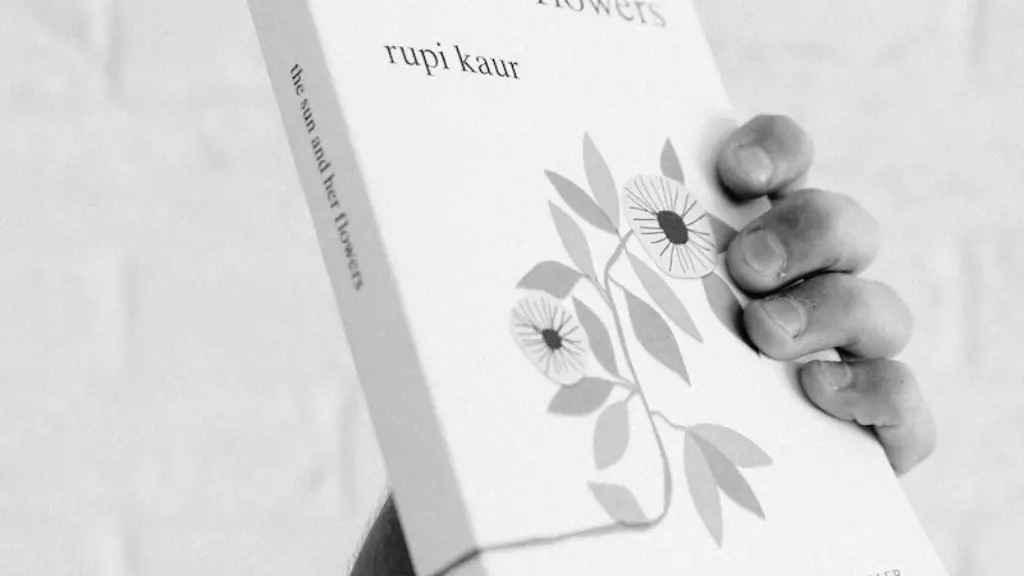Robert Frost was an American poet who garnered fame in the later part of the nineteenth century and the early parts of the twentieth century. Considered one of the leading poets in the United States, Frost was born in San Francisco and later moved to Boston Massachussets with his family. He emerged onto the literary scene with the publication of his first two books of poetry in England in 1913 and 1914. Frost is most famous for his poems about rural life in New England and the love of nature he poured into his work.
The imagery in Robert Frost’s poetry is his most siginificant feature and as such, his work is often covered in high schools, colleges and universities. His work often focuses on rural life, nature and its duality, for example, that it can be both beautiful and threatening. Frost expresses the joy of living outdoors among nature but also the danger of it, noting that much of life is a journey down a narrow path, with the limits of life and the perspective of freedom.
The words Frost puts on paper often push the reader to explore their own psychology. They often make readers think – in some cases, poets have used Frost’s poetry as a source of inspiration and ideas of their own work. Frost’s work delves into the well of his readers’ creativity, showing them a range of emotions as they can empathize with his words and develop an acute understanding of the mind.
Frost’s work often touches upon important themes, such as the fear of life and death, the search for identity and what freedom means. His line of thought often questions the conformity and hidden expectations of the modern world. Frost provides a thought-provoking commentary on a variety of topics and doesn’t shy away from the darker side of life.
The combination of subject matter and his precise use of the English language are what makes Robert Frost’s work so revolutionary – especially when considering the brevity of the works themselves. To illustrate this, one of his most well-known poems, The Road Not Taken, consists of only 16 lines, but it conveys one of life’s quintessential messages. Namely, that every decision one makes has a consequence and that no decision is any better or worse than the other.
Frost’s poetry has an ability to connect with people of all ages and backgrounds. It speaks to the shared human experience and often touches upon universal themes. On a more personal level, his works provide an insight into life and its complexities, probing the depths of the innermost thoughts and feelings of the reader.
In addition to his poetry, Frost wrote lyrics, stories, and essays – arguably some of which went unreceived. But it is undeniable that much of his work is still influential today and he remains as one of the most recognized and critically acclaimed poets in the literature world.
Societal Destruction and Political Conflict
Robert Frost’s work often touches upon themes of societal destruction and political conflict. His poetry portrays an omnipresent sense of despair in a world facing dire consequences due to the actions of those in power. Frost’s lines often echo the thoughts of an individual witnessing the world crumbling around them, only to be helpless – unable to prevent such destruction.
Frost’s use of language is also important here – he often uses metaphor and alliteration to convey the gravity of what’s happening in society. His work is filled with imagery of storms and chaos, depicting a dystopian world filled with discord and discordantly peaceful events that evoke the feeling of a world spinning out of control.
The emotions contained in his words are certain to send a chill down the reader’s spine as he reflects upon the harshness and cruelty of war, questions the motivations of those who wage it and questions the notion of freedom. Frost implores his readers to consider these cruel realities, urging them to consider the consequences of their actions.
Robert Frost’s work also speaks of a loss of values. He speaks of the shift in moral and ethical codes that occured over his lifetime – the erosion of respect for the values of equality and freedom. In his work, Frost boasts a sense of rebellion and speaks of the dangers of following blindly in the footsteps of those in power.
The destruction of a society is seen in many of Frost’s works. Through his words, readers can feel the desolation of a dystopian world as Frost paints a picture of destruction, war and despair with just a few words. Despite the bleakness, however, Frost does not despair, instead conveying an optimism – even in the face of destruction – and ultimately showing the reader that there is hope for redemption.
The Duality of Nature
One of the most enduring themes in Robert Frost’s work is the duality of nature. Frost often juxtaposes opposing images – such as light and dark, life and death, good and evil – in order to create a sense of unease and also to remind readers of the cruelty of nature.
Frost also uses the duality of nature to emphasize the opposing forces in life. Through his words, Frost implies that humans are subject to dualities, that we can be happy and sad, joyous and terrified at the same time. He encourages readers to acknowledge the presence of these conflicting emotions and to acknowledge the gravity of the choices they must make.
Frost also uses the duality of nature to convey a sense of inner conflict. He suggests that this inner conflict is necessary in order to grow and evolve, as human life is not just about the pursuit of happiness but also about the confrontation of fear. Frost speaks of his own inner conflict in his work and encourages his readers to do the same.
The duality of nature is a key theme in Frost’s poetry, one that emphasizes the importance of balance in life. Nature can be both beautiful and frightening, and Frost implores his readers to appreciate both aspects of nature – to accept that beauty and terror can exist side-by-side.
The beauty of Frost’s work is that it can often be interpreted in different ways – readers can find solace in the fact that he speaks of inner conflict, reminding them that it is normal to feel this way. Frost takes readers on an emotional rollercoaster ride, providing them with an open and honest view of life and its complexities.
The Beauty of Nature
Robert Frost speaks fondly of nature, depicting it in a romanticized and often idealized light. He often focuses on the ethereal beauty of nature, painting a picture of a world of infinite possibilities.
Frost speaks of the magnificence of the stars, the mystery of murmuring rivers, and the whisper of the wind – imagery that is often serene but at the same time melancholic in a way. His words convey a dreamy beauty, providing the reader with a sense of bliss and freedom in a sometimes suffocatingly mundane world.
In his poem, The Road Not Taken, Frost shows his belief that the beauty of nature can be uplifting and life-affirming. The poem speaks of the joy of taking a path less traveled, of discovering a new beauty that can’t be found elsewhere.
By raising such themes as exploration and discovery, Frost encourages his readers to identify with the unknown, to step outside their comfort zones and go on a journey of self-discovery. His lines speak of adventure, the idea that nature can nurture the soul, and provide the reader with a sense of joy and contentment.
Frost implores readers to embrace the beauty of nature and to never stop striving for greatness. His words act as a reminder that although life may be difficult, the journey can be just as rewarding.
Facing the Fear of Death
Death is a common theme in Robert Frost’s works, and while he never explicitly states his views on this topic, he explores it in a way that causes his readers to grapple with their own mortality.
Frost often uses lines such as ‘the woods are lovely, dark and deep’ to emphasize the fact that, although life is beautiful, it is finite. He speaks of the emptiness that can be found in life, touches on the fear of death, and conveys the feeling of inevitability one feels in the face of death.
Frost also speaks of the insignificance of death, noting that what matters most is not how one dies but how one has lived their life. This sentiment is often explored in his works, as Frost encourages readers to assess their own life and their achievements, and use these reflections to confront their fear of death.
Frost’s work often touches upon the transience of life and its fleetingness, acknowledging death’s dominance over life. His works are honest yet comforting, as he doesn’t dwell on death’s harshness but instils a sense of hope in the absence of fear.
In his poem, Nothing Gold Can Stay, Frost speaks of the ‘brilliance of the sun’ and its inevitability that it will ‘be put to flight’, creating an ephemeral feeling of joy. Frost’s lines are evocative, his words seemingly ringing out in the emptiness of the night, urging readers to take pleasure in fleeting moments.
The Pursuit of Freedom
The concept of freedom is another theme present in Frost’s works. He speaks of the ‘free air’, the ‘open sky’ and the ‘open swards’, creating an atmosphere of spaciousness and freedom. His words are a call for individual autonomy, reminding readers that life is more than mere captivity.
Frost also speaks of the need for individuality, that to find purpose in life, one must take control of their own destiny. He speaks of the power of choice and urges readers to take control of their own destiny, irrespective of society’s expectations. Frost also speaks of the courage to confront fear, to choose what is right, and not what is easy.
These elements of Frost’s works often speak of the pursuit of freedom, the idea that by making difficult decisions we can free ourselves from the chains of conformity. He encourages his readers to have courage and to take risks – to not let a boundless sky limit our worldview.
Frost speaks of the importance of decisions, and encourages readers to consider the consequences of their actions – that each choice has a price, whether good or bad. His words remind readers that not all choices can be undone and that every decision, however small, has a tremendous impact on our lives.
In his poem, The Road Not Taken, Frost speaks of the need for exploration and discovery, showing that sometimes the journey is more important than the destination. His words can be seen as an encouragement, a reminder that we should take control of our own destiny, and not follow the expectations of the world.





